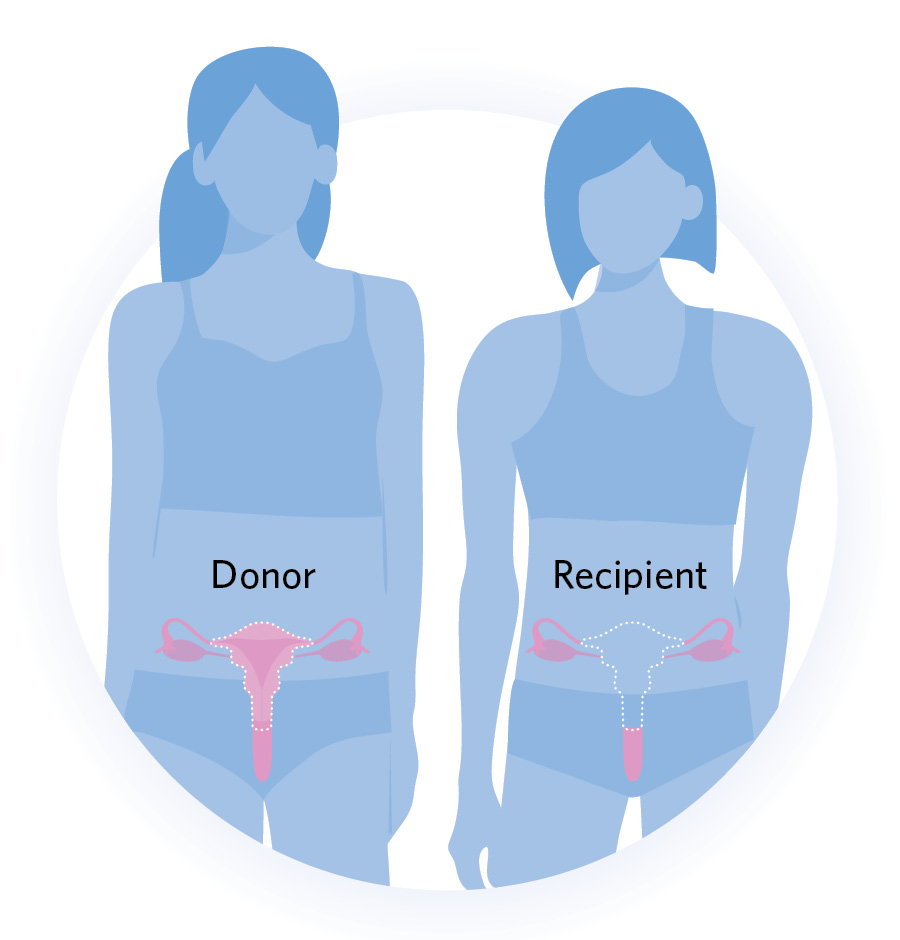A Community Voice: Advocating For Uterus Transplants In Transgender Healthcare

Table of Contents
The Current Medical Landscape of Uterus Transplants
Success Rates and Challenges
Uterus transplants in cisgender women have shown some success, offering hope for transgender women seeking to experience pregnancy. However, the journey is fraught with challenges. The current success rates, while improving, are still relatively low, highlighting the complexities involved. Adapting this procedure for transgender women presents unique hurdles.
- Surgical and Immunological Challenges: The surgery itself is highly complex, requiring a skilled surgical team and significant resources. The recipient's body may reject the transplanted uterus, necessitating powerful immunosuppressant drugs with their own associated risks. Furthermore, the unique physiological differences between cisgender and transgender women present additional surgical and immunological considerations.
- Need for Further Research and Development: Significant further research is needed to understand and address the specific challenges of uterus transplantation in transgender women. This includes optimizing surgical techniques, refining immunosuppression protocols, and conducting larger-scale clinical trials.
- Ethical Debates Surrounding Organ Donation and Recipient Selection: Ethical considerations surrounding organ donation and the selection of recipients are paramount. Criteria for selecting candidates for uterus transplantation in transgender women must be carefully established to ensure fairness and equity.
Technological Advancements and Future Potential
While challenges remain, advancements in medical technology offer hope for improving the feasibility and safety of uterus transplants for transgender individuals.
- Advancements in Immunosuppression: Research into less toxic and more effective immunosuppressant drugs is crucial to reducing the risk of rejection and minimizing side effects. This includes exploring personalized medicine approaches tailored to individual patient needs.
- Potential for 3D-Printed Organs or Tissue Engineering: The exciting potential of 3D-printed organs and tissue engineering could revolutionize uterus transplantation. Creating bioengineered uteri could potentially eliminate the need for donor organs, overcoming the limitations of organ availability and reducing the risk of rejection.
- Ongoing Clinical Trials and Studies: Multiple research institutions are actively involved in ongoing clinical trials and studies focused on refining uterus transplantation techniques and exploring new approaches to improve success rates. Close monitoring of these studies is critical for future progress.
Ethical Considerations and Societal Implications
Access and Equity
Ensuring equitable access to uterus transplants for transgender women is crucial. Disparities based on socioeconomic status, insurance coverage, and geographical location must be addressed.
- Equitable Distribution of Resources and Funding: Adequate funding for research, clinical trials, and the procedure itself is essential to ensuring access for all who qualify, regardless of their socioeconomic background.
- Advocacy for Inclusive Healthcare Policies: Strong advocacy is needed to promote inclusive healthcare policies that explicitly cover uterus transplantation as a viable option within the scope of transgender healthcare.
- Addressing Potential for Discrimination Within the Healthcare System: Efforts must be made to address potential biases and discrimination within the healthcare system that could hinder access for transgender individuals seeking this procedure.
Informed Consent and Patient Autonomy
Respecting patient autonomy and ensuring fully informed consent are paramount. Transgender women must have access to comprehensive information about the procedure, its risks, benefits, and potential complications.
- Comprehensive Counseling and Education for Transgender Patients: Providing comprehensive counseling and education is crucial to ensuring that patients fully understand the implications of undergoing a uterus transplant.
- Ethical Considerations Regarding Potential Risks and Complications: Open and honest discussion about the potential risks and complications of the procedure are vital to empowering patients to make informed decisions.
- Importance of Patient-Centered Care: Adopting a patient-centered care approach ensures that the individual's needs and preferences are prioritized throughout the process.
Advocacy Strategies and Community Engagement
Raising Awareness and Building Support
Raising public awareness and garnering support from the medical community and society at large are crucial steps in advocating for access to uterus transplants.
- Role of Patient Advocacy Groups and Transgender Organizations: Transgender advocacy groups play a vital role in raising awareness, providing support to individuals, and engaging with healthcare providers and policymakers.
- Importance of Media Outreach and Public Education Campaigns: Targeted media outreach and public education campaigns can help dispel misconceptions and foster understanding of the procedure and the needs of the transgender community.
- Power of Sharing Personal Stories and Testimonials: Sharing personal stories of transgender women who desire this procedure can humanize the issue and increase empathy and support.
Engaging with Policymakers and Funding Agencies
Engaging with policymakers and securing funding for research and clinical trials are essential for making uterus transplants a reality.
- Lobbying Efforts and Advocacy Initiatives: Direct lobbying efforts targeted at policymakers are crucial to influence legislation and healthcare policies related to transgender healthcare.
- Collaboration with Researchers and Medical Professionals: Collaboration with researchers and medical professionals is key to advancing research, improving the procedure, and informing policy decisions.
- Need for Data-Driven Advocacy and Evidence-Based Policy Recommendations: Using data and evidence to support policy recommendations strengthens the advocacy effort and facilitates meaningful changes.
Conclusion
The pursuit of uterus transplants in transgender healthcare is a complex but critical undertaking. By addressing the medical challenges, ethical considerations, and advocating for increased access and resources, we can pave the way for a more inclusive and equitable future for transgender women. Continued community engagement and collaborative efforts between healthcare professionals, researchers, policymakers, and transgender individuals themselves are vital to making uterus transplants a reality. Let’s amplify the community voice and continue advocating for uterus transplants in transgender healthcare so that all transgender individuals can have access to the comprehensive care they deserve. The fight for access to uterus transplants is a fight for bodily autonomy and reproductive justice within the transgender community; let’s continue to champion this essential cause.

Featured Posts
-
 Edmonton School Projects 14 Initiatives To Proceed Rapidly
May 10, 2025
Edmonton School Projects 14 Initiatives To Proceed Rapidly
May 10, 2025 -
 The China Market A Case Study Of Bmw And Porsches Struggles And Strategies
May 10, 2025
The China Market A Case Study Of Bmw And Porsches Struggles And Strategies
May 10, 2025 -
 Fox News Hosts Sharp Rebuttal To Colleagues Trump Tariff Comments
May 10, 2025
Fox News Hosts Sharp Rebuttal To Colleagues Trump Tariff Comments
May 10, 2025 -
 500 Point Sensex Gain Detailed Market Analysis And Top Performers
May 10, 2025
500 Point Sensex Gain Detailed Market Analysis And Top Performers
May 10, 2025 -
 Apple At A Crossroads The Challenge Of Ai Leadership
May 10, 2025
Apple At A Crossroads The Challenge Of Ai Leadership
May 10, 2025
